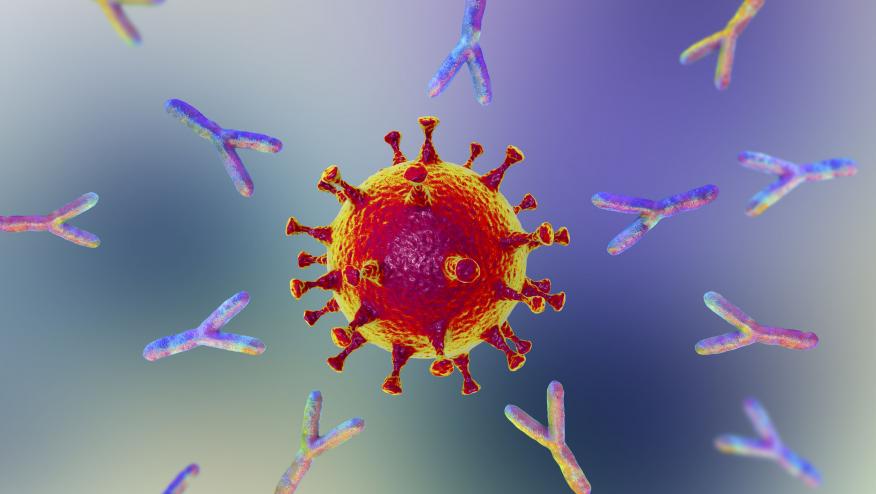NEJM: Early Combo Monoclonal Antibody Therapy in COVID-19 Save

NEJM has published the interim analysis of the REGN-COV2 trial, wherein an antibody cocktail reduced viral loads with less clinical consequences.
Recent data suggest that high viral loads are associated with greater risk for COVID-19 complications and death. A combination of two monoclonal antibodies directed at the spike protein, casirivimab and imdevimab, make up the REGN-COV2 cocktail, designed to abrogate viral loads in COVID-19 infected individuals.
This ongoing, double-blind, trial is treating nonhospitalized patients with Covid-19, with two fully human, neutralizing monoclonal antibodies against the SARS-CoV-2 spike protein to reduce the risk of the emergence of treatment-resistant mutant virus. Patients were randomized to either placebo, 2.4 g of REGN-COV2, or 8.0 g of REGN-COV2. Key end points included the time-weighted average change in viral load from baseline (day 1) through day 7 and the percentage of patients with at least one Covid-19–related medically attended visit through day 29.
Data from the first 275 patients were reported. When comparing the mean differences between the combined REGN-COV2 treated patients and the placebo group showed the time-weighted average change in viral load from day 1 through day 7 was:
- −0.56 log10 copies per milliliter among patients who were serum antibody–negative at baseline and
- −0.41 log10 copies per milliliter in the overall trial population.
Clinically, In the overall trial population, 6% of the patients in the placebo group and 3% of the combined REGN-COV2 patients had least one medically attended visit; among patients who were serum antibody–negative at baseline. For all patients, the corresponding percentages were 15% and 6% Safety signals were the same between groups.
In this interim analysis, the REGN-COV2 antibody cocktail reduced viral load, with a greater effect in patients whose immune response had not yet been initiated or who had a high viral load at baseline.










If you are a health practitioner, you may Login/Register to comment.
Due to the nature of these comment forums, only health practitioners are allowed to comment at this time.